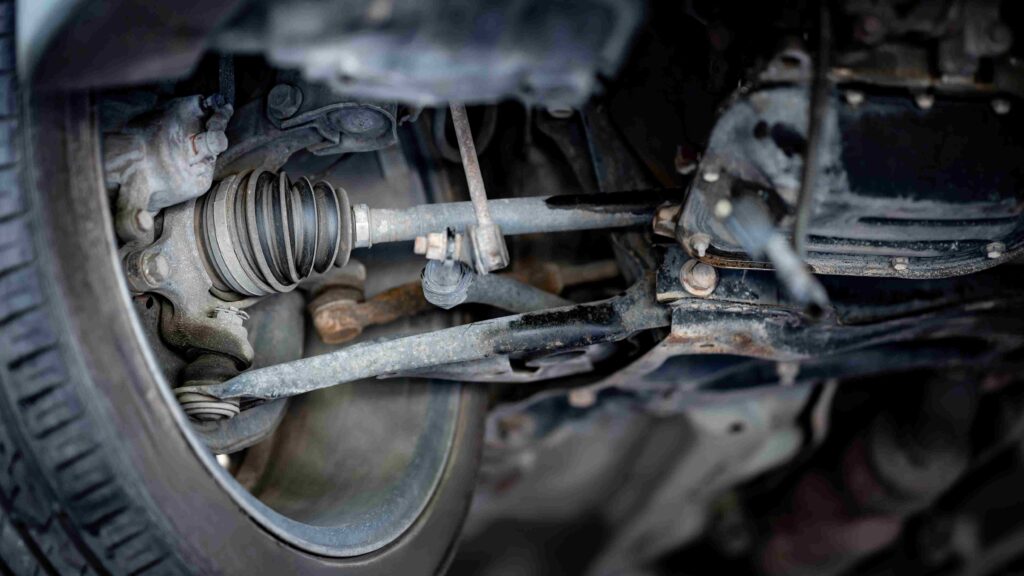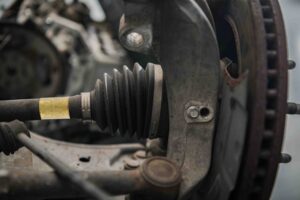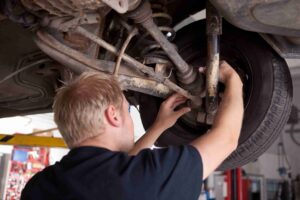Is CV Joint Covered Under Warranty
Is CV Joint covered under warranty? If your car is covered under a manufacturer or factory warranty, repairs are generally covered at no cost to you. However, most manufacturer warranties only last a certain amount of time or mileage, with most standard factory warranties ending at 3 years or 36,000 miles. If your car’s CV Joint breaks unexpectedly and your manufacturer’s warranty expired, then you’ll left paying those costly repair bills on your own.
It’s important to check the warranty information for your specific vehicle before making any repairs. Some warranties may cover the cost of repairs, while others may only cover the cost of replacement parts.
Manufacturer’s Warranty
CV Joint breaks are sometimes covered by the vehicle’s Manufacturer Warranty. This coverage typically applies to defects in materials or workmanship during the warranty period. The warranty duration for a vehicle’s CV Joint can vary. It may range from a few years to the vehicle’s lifetime. Check your vehicle’s warranty documentation or contact the manufacturer for coverage period.
Manufacturer warranties frequently include exclusions, such as coverage for typical wear and tear or damage resulting from accidents, misuse, or modifications by the owner. Should your vehicle’s Joint break, you can usually get it fixed or replaced at an authorized dealership or service center. In order to secure warranty coverage for your vehicle, proof of ownership is typically required. This can be provided through your vehicle’s registration or purchase documents.
Extended Warranty
Consumers may choose to buy a Mopar Extended Warranty to cover CV Joints. These are frequently provided by third-party companies or retailers and can offer coverage beyond the manufacturer’s warranty. Carefully review the policy to understand the coverage and circumstances for repairs under extended warranties.
The Mopar Maximum Care Warranty, also known as the “bumper-to-bumper” warranty, is the most comprehensive extended coverage available for Chrysler, Dodge, Jeep or Ram. It extends your Chrysler, Dodge, Jeep or Ram’s powertrain and basic component coverage beyond the 3-year/36,000-mile manufacturer’s warranty. Additionally, it covers more than 5,000 components, providing virtually complete mechanical coverage for your vehicle.
The only components not covered under this warranty include:
- Maintenance services and items used in such services.
- Glass, plastic lenses.
- Body and paint items, including soft trim.
- Wear items such as manual clutch assembly, brake pads, shoes, rotors, drums and belts are not covered at any time.
- Snowplows, winches and trailer hitches.
Signs of Failing CV Joint
Your vehicle’s Constant Velocity (CV) Joints are vital components of the drivetrain, responsible for transmitting power from the transmission to the wheels. Over time, these joints can wear out, leading to a variety of issues. Recognizing the signs of a failing CV joint is crucial for maintaining your vehicle’s performance and preventing further damage.
- Clicking or Popping Noises. One of the most noticeable signs of a failing CV joint is the presence of clicking or popping noises, especially during turns. These sounds indicate that the joint’s protective boot may be damaged, allowing dirt and debris to infiltrate and compromise the joint’s lubrication.
- Vibrations During Acceleration. A failing CV joint can cause vibrations, particularly during acceleration. If you feel unusual vibrations in the vehicle, especially when putting your foot on the gas pedal, it could be a signal that the CV joints are no longer providing smooth power transfer.
- Grease on the Inside Edge of Tires. Inspect the inner edge of your tires for splatters of grease. A torn or damaged CV joint boot can result in the leakage of grease, leading to decreased lubrication and eventual CV joint failure. If you notice grease on the tires or around the axle shaft, it’s time to address the CV joint issue.
-
Jerking Sensation During Turns.
Failing CV joints can cause a noticeable jerking sensation when making turns, particularly at low speeds. This can be attributed to increased friction and reduced flexibility in the joint, affecting the smooth rotation of the axle.
- Visible CV Joint Boot Damage. Perform a visual inspection of the CV joint boots. Cracks, tears, or leaks in the boots are clear indicators of impending failure. Damaged boots expose the CV joints to contaminants, accelerating wear and diminishing their lifespan.
- Axle Grease Splatter Underneath the Vehicle. A failing CV joint can result in grease splatter underneath the vehicle. If you observe grease deposits on the ground, it signifies a breach in the protective boot, allowing lubricant to escape and increasing the risk of CV joint failure.






